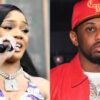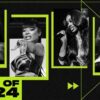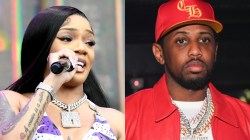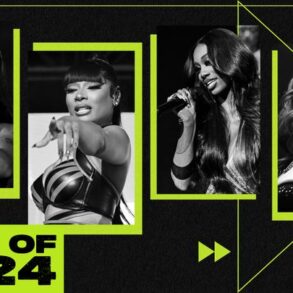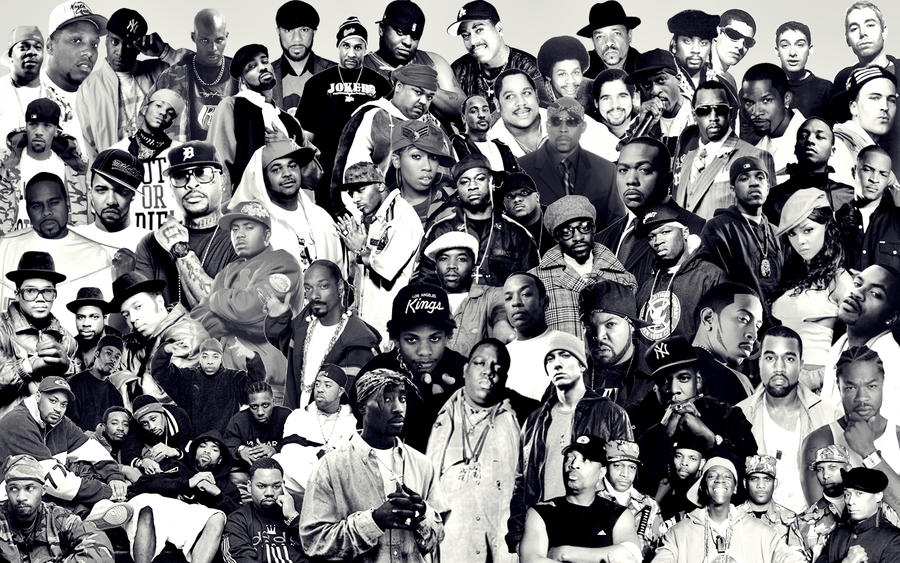
Hip-hop and rap have been male-dominated fields since their creation. As a byproduct, this has led to misogyny being more readily accepted within its music and especially its lyrics. As a female listener who loves rap and hip-hop, it is hard to consume music that directly states violent and misogynistic lyrics against women.
When I first started listening to rap and hip-hop in middle school, I was really drawn to the Notorious B.I.G. and Tupac as I knew them to be pop culture icons. I also learned the cultural impact that these men had within hip-hop and the broader culture. But as I listened to their discographies more closely, it was clear that the lyrics about power extended to references of violence against women. Sexual assault is primarily about power over another person and these lyrics use women as symbols of it. Hearing these lyrics as a young female listener, it’s hard not to see these men in a negative light.
Biggie is one of the most popular rappers to date and is one of my favorites. He has a unique sound in East Coast rap that ranges from delicate melodies to harder sounds.
However, Biggie is one of the most consistent offenders of an artist whose lyrics reference violence against women. One of the worst is in “Gimme the Loot” where he states, “Bitches get strangled for their earrings and bangles / And when I rock her and drop her, I’m taking her door knockers / And if she’s resistant, blakka, blakka, blakka.” In his song “Dreams” he says “make Raven Symoné call date rape” when he is describing famous women he wants. Though these lyrics came from a different time, Biggie is still highly praised and rarely are these damaging themes in his lyrics ever called out.
Story continues below advertisement
Rap has progressed much further, and women have become a larger part of the industry today. These lyrics that were once considered common in the 90s would not be acceptable today. However, there is still an air of misogyny even within current rappers and even ones who are considered more progressive.
One of my favorite rappers, Kendrick Lamar, still continuously uses the word “bitch” in his lyrics. Though I do not believe that it is coming from a place of hatred of women or wanting to belittle them, the word still has connotations in deeply misogynistic beliefs. The phrase “my bitch” is used as a way to reference partners in rap lyrics by Kendrick and others and has been used since the 90s, like in Biggie’s popular song “Me and My Bitch.” “Bitches” is also used as a derogatory term towards other male rappers. No matter how it is phrased, when “bitch” is used by male rappers, it is degrading.
I understand that taking “bitch” out of every man’s vocabulary is never going to happen. However, constantly hearing it as a woman who has experienced misogyny from even people I’m close to, it’s hard to look up to artists’ music who I love and still respect them on the same level.
And yet, rap is another facet by which we can see the progression of women within male-dominated fields. Missy Elliott, Lauryn Hill and Lil Kim are some of my favorite examples of women who were breaking down barriers of what a rapper can be. Even during this time of rap where violent words are commonly used against women, these women are still fighting just by being in the space of rap.
I love rap, and it is one of the biggest parts of American culture over the past few decades. It has been a means to communicate the lived experiences of many people and their hardships. I believe that it can serve as a way for women especially to communicate both their lives, sexuality, beliefs, but also their hardships. I think reevaluating how we consume and listen to rap and the deeply misogynistic messages embedded into some artists’ lyrics is one of the ways that rap can serve to educate us on another perspective.
This post was originally published on this site be sure to check out more of their content.

